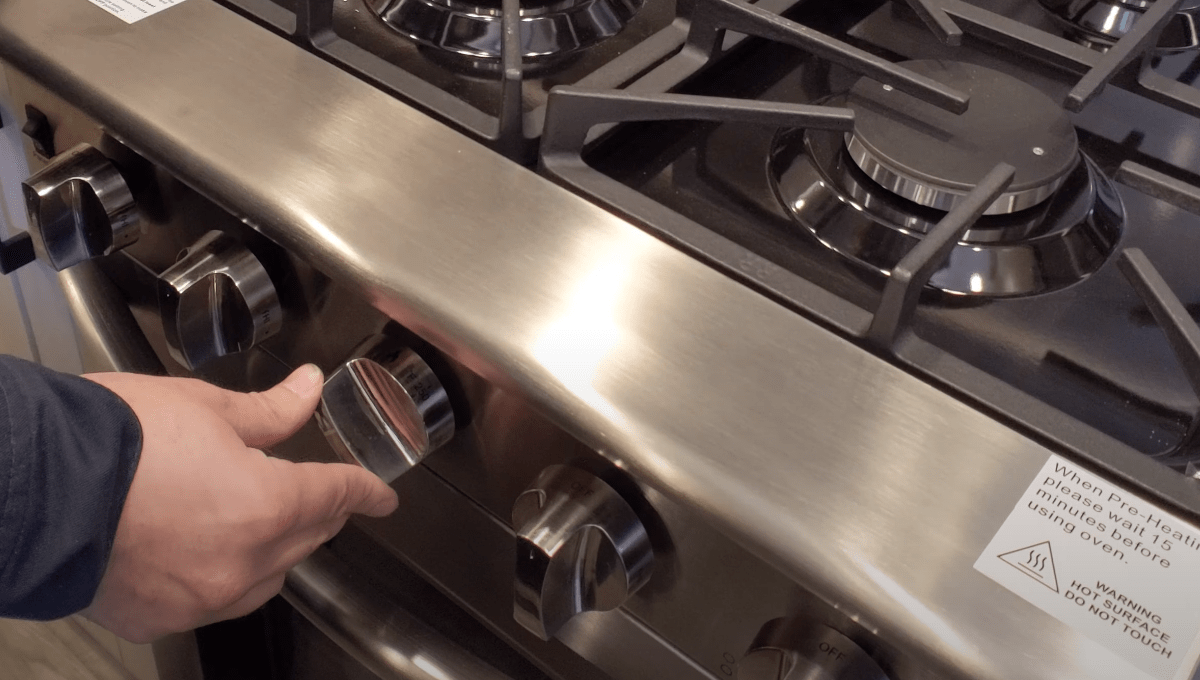If you haven’t used your RV propane system for a while or have noticed your appliances not starting (or showing strange behavior), you may need to purge your RV propane lines.
And while bleeding air from your RV propane lines may seem intimidating, it’s a simple process.
So, let’s learn how to purge RV propane lines step-by-step and answer a few frequently asked questions.
How to Purge Air From a Propane Gas Line
Purging air from your RV’s propane system is straightforward and only takes about 2 minutes.
Total Time: 2 minutes
Step 1: Open the Propane Tank Valve

Open the propane tank valve. Do this by rotating it counterclockwise as far as it will go.
Step 2: Light Your Stovetop

Next, simply light your stove burner. It may take a while for the burner to light as the gas starts to flow and push the air out of the system. Once the first burner is lit, turn on the rest of the burners on your stovetop.
Step 3: Watch the Burner Flames

Keep an eye on the burner flames. When the flames burn steadily and turn blue, the propane lines have been purged. Turn your burner off.
Tip: Light any other propane-powered appliances in your motorhome and ensure they are working properly. They could be on a different LP line than your stovetop and need to be purged.
How Does Air Get In RV Propane Lines?
Your RVs propane system is sealed and pressurized. So, how does air get in it in the first place?
If you completely run out of propane and change tanks (or hook up an external propane tank), it’s possible that air can get in the lines and make it hard to start any gas appliance. With that said, as your propane system gets older, those rubber propane hoses can start to give out, and/or a propane connection may have loosened over time.
These leaks may be so small that your RV propane detector won’t even pick them up. And couple that leak with a long duration in storage, and you will likely experience issues with starting your propane-powered appliances due to air in the lines.
If you are constantly experiencing issues with air in your propane lines, you should have the propane system tested by a certified RV technician.
When Should You Purge the RV Propane Lines?
You should purge your RV propane lines of air every time you arrive at your camping destination and plan to use your propane system. Especially if you just pulled your RV out of storage. Also, after every time you replace your propane tanks.
Apart from this, if you notice your gas appliances having any of the following issues, you may have to bleed your propane lines:
- The stove-top flame is orange instead of blue
- The RV furnace, fridge, or water heater fails to ignite
If you experience any of the above issues, you should try bleeding your propane lines first, as it’s easy and free. If the problem still exists, you could have a bad RV propane regulator, the RV propane stopped flowing altogether, or other issues.
What Happens if You Don’t Purge a Propane Tank?
New propane tanks usually come filled with some air to counteract pressure changes that occur while they are shipped over different altitudes.
So, what happens if you don’t purge the air from a propane tank? Moisture in the air can cause your regulator to freeze up, the inside of your propane tank to rust, and even cause issues with filling it back up.
Worse yet, a cylinder not properly purged can make it more difficult to spot a leak as you might not be able to smell it. A brand-new propane tank should be purged by a certified professional.

How do you purge your furnace and refrigerator?